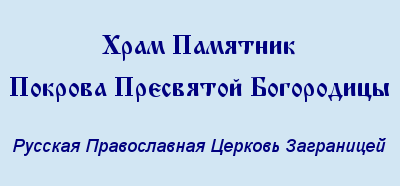Dear Brothers and Sisters,
Congratulations with the feast of the resurrection of the Lord, as well as with the Аfter-feast of Theophany!
Today let’s continue the theme which we began at the beginning of the Nativity fast and briefly discuss the Prophet Hosea. The Holy Prophet of God Hosea was born and lived in the northern kingdom of Israel in the second half of the eighth century BC. For the Israelites, this was a difficult time. External enemies, the Assyrians, were threatening to destroy Israel. Internally, the state was racked by governmental chaos and anarchy. Kings were replacing each other at a quick pace. In addition to all of this, we can add that there was a serious fall in the moral standing of the people. At the beginning of his prophecy, Hosea describes the moral condition of his fellow citizens in the following way: “There is no truth, nor mercy, nor knowledge of God in the land. By swearing, and lying, and killing, and stealing, and committing adultery, they break out, and blood toucheth blood” (Hosea 4: 1-2).
At such a joyless and difficult time did the Prophet of God Hosea preach. His book contains fourteen chapters in which he very expressively writes about the falling away of the chosen people from the Lord God. The holy prophet’s favourite image to express this apostasy was the marriage of a faithful husband to an adulterous wife. The faithful husband is the Lord God, who, notwithstanding everything, passionately loves his wife and does everything for the sake of her happiness. The adulterous wife is the Israelite people; she constantly wanders with foreign gods and notices none of the kindnesses of her husband.
The Holy Prophet Hosea notes that the main reason for all of Israel’s problems is the absence of knowledge of God among the people. With the words “I desired mercy, and not sacrifice; and the knowledge of God more than burnt offerings” (Hosea 6: 6) the prophet notes that the Lord God is expecting not theoretical knowledge of Holy Scripture and not an empty fulfilling of rituals, but a living love of the people towards their Creator.
Despite the general apostasy of the people from God, Hosea mentions that the Lord, even though He will punish them, will never abandon them, and that a time will come when not only Jews, but also other nations will faithfully serve God and live under His protection. Of course, this prophecy was fulfilled not only in the literal sense by the fall of the Assyrian Empire, and later the Chaldean, but also in a spiritual sense, when our Lord Jesus Christ established His Church and called all to enter into it, not only the Jews, but also the gentiles.
It is not only Hosea that uses the image of a marriage to describe the relationship between God and His people. It seems to me that the Apostle Paul may have been thinking about the image of a marriage in the Prophecy of Hosea when he described the union of a husband and wife as a metaphor for the love between Christ and the Church in his Epistle to the Ephesians. That flaming love of God for the Israelites is also reflected in the General Epistles of the Apostle John the Theologian, the Apostle of Love.
Dear Brothers and Sisters, today we all find ourselves living in difficult times when we see little that is good around ourselves. An awful war continues to rage in Ukraine, while in Canada both the government and society have reached a dead end, a crisis. Moral decline is evident throughout the world. Apostasy, divorce, abortions, and sexual immorality are everywhere. The words of the Holy Prophet Hosea that “there is no truth, nor mercy, nor knowledge of God in the land. By swearing, and lying, and killing, and stealing, and committing adultery, they break out, and blood toucheth blood” are fitting not only in relation to the bygone days of the Israelites, but even more so to our own time. Despite this, the Lord continues to love and support us. Therefore, let’s turn to Him, leaving behind our sinful habits, and serve Him.
priest Alexis







